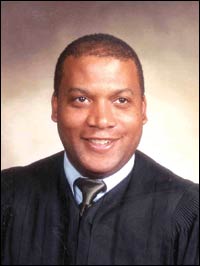INDEFENSIBLE POSITION
By: Jack Zemlicka, [email protected]//November 22, 2010//

In Milwaukee’s Drug Court system, defense attorneys have the ability to represent clients enrolled in the program and also serve as members of the collaborative treatment court team.
That dual role presents ethical and practical pitfalls. Attorneys run the risk of betraying the attorney-client privilege should they disclose confidential information to team members. But without revealing that information, it’s difficult to be fully involved in the administration of the court.
Milwaukee County Circuit Court Judge M. Joseph Donald presided over the Drug Court when it began in October 2009 and said the expectation is for full disclosure from everyone involved in the process.
His approach was to embrace the concept of a treatment court and not make it a “retribution court.” In situations where information is available to one team member, but not others, Donald said the decision has to be made whether the client wants to remain in the program.
“If so, then we need that information,” Donald said. “If they do not want information disclosed, do they want to stay in the program?”
An alternative to avoid an ethical dilemma, Donald said, is for a lawyer to withdraw from the case and have new counsel appointed, rather than risk a violation of the attorney-client privilege.
“If the prior attorney wants to assert attorney-client privilege, he has that right,” Donald said.
At the same time, he said attorneys have to be more forthcoming than they normally would be in a traditional adversarial role. Donald said defense attorneys in the past have offered information related to their client’s ability, or inability, to advance in Drug Court, such as if the person is being evicted or involved in a collections case. Such information can help the court decide if outside factors influenced the client’s progress.
“I tell defense attorneys it’s not just about getting the client off,” he said. “It’s about addressing the issues that caused this person to come into the criminal justice system.”
Of the 36 counties with functioning treatment courts, Milwaukee’s model is rare in that enrollment occurs prior to sentencing and a defense attorney appears and advocates for clients during hearings.
Many of those same defense attorneys also regularly meet with members of the Drug Court team, including prosecutors, the presiding judge and other treatment professionals, to make recommendations on sanctions or rewards.
In his experience, Milwaukee defense attorney William J. Reddin said avoiding ethical issues is simply a matter of being up front with clients when they decide to enroll.

Prior to representing clients in Drug Court, he explains that his job is to act in the best interests of the individual, even if that means recommending sanctions, which runs contrary to the traditional role of a defense lawyer.
“I’m pretty clear with clients that we’re not going to be conning the court,” Reddin said. “If we get in, we go in with the idea of cooperating and being open and honest. If not, we’ll do something else like trial.”
Attorneys and judges who work in other treatment courts say the Milwaukee system is problematic because it requires defense attorneys to fill two conflicting roles.
Waukesha attorney Anthony J. Cotton said that a lawyer’s primary responsibility has to be to his or her client, not a program, and betraying that confidence could constitute a violation of attorney-client privilege.
“A lawyer would have to be careful not to develop an allegiance to the program that trumps that of the client,” said Cotton, who has had several clients enrolled in Waukesha’s OWI Court.
State Bar of Wisconsin ethics lawyer Timothy J. Pierce argued that if a treatment court requires attorneys to act as an adviser to the court, while at the same time serving a client, it constitutes an “unwaiveable conflict of interest.”
Winnebago County Judge Scott C. Woldt, who facilitates the county’s Juvenile Drug Court, said that putting defense attorneys in that position calls into question the lawyer’s motive for sharing information.
In most counties, Winnebago included, defense attorneys who are team members don’t represent people who agree to enter into a treatment court program, unless there is a termination.
“From a judge’s perspective, I don’t know how I can put much credit into what is said by that attorney at the team meeting because I assume they are ethically bound to zealously represent their client’s interests,” Woldt said.
Pierce said the emergence of treatment courts as alternatives to incarceration have created a tension among lawyers who have to avoid the mindset that the new model allows them to become “quasi-guardian ad litems” for their own client.
“You can’t do that,” he said. “That’s where the danger lies.”
Beyond the ethical concerns are practical considerations as well.
Janesville attorney James D. Wickhem suggested that clients could get the wrong impression about a defense lawyer’s commitment if they are also working with a treatment court team.
“I think it further impairs the perception of you as a lawyer and your ability to represent defendants,” said Wickhem, who serves on the State Bar’s Ethics Committee.
Woldt said he sees the benefit of Milwaukee’s Drug Court model, in that offenders who complete the program can have their case dismissed prior to sentencing.
But he also noted that new laws allow for expunction of an individual’s record contingent on completion of drug court.
“Maybe that is something they could look into as far as changes because you can reach the same result post-adjudication,” he said.
At this point, Milwaukee may look to “beef up” the language in its Drug Court procedural manual to be more specific with regards to waiver of confidentiality and privacy, said State Public Defender Robin E. Dorman, who serves on the Board of Directors for the Wisconsin Association of Treatment Court Professionals.
“We could put in a little more language about waiver of confidentiality, but I think everyone gets what we’re doing in there,” she said. “It’s a very different way of doing business.”
Jack Zemlicka can be reached at [email protected].
Legal News
- State Bar leaders remain deeply divided over special purpose trust
- Former Wisconsin college chancellor fired over porn career is fighting to keep his faculty post
- Pecker says he pledged to be Trump campaign’s ‘eyes and ears’ during 2016 race
- A conservative quest to limit diversity programs gains momentum in states
- Wisconsin prison inmate pleads not guilty to killing cellmate
- Waukesha man sentenced to 30 years for Sex Trafficking
- 12-year-old shot in Milwaukee Wednesday with ‘serious injuries’
- Milwaukee man convicted of laundering proceeds of business email compromise fraud schemes
- Giuliani, Meadows among 18 indicted in Arizona fake electors case
- Some State Bar diversity participants walk away from program
- Wisconsin court issues arrest warrant ‘in error’ for Minocqua Brewing owner
- Iranian nationals charged cyber campaign targeting U.S. Companies
WLJ People
- Power 30 Personal Injury Attorneys – Russell Nicolet
- Power 30 Personal Injury Attorneys – Benjamin Nicolet
- Power 30 Personal Injury Attorneys – Dustin T. Woehl
- Power 30 Personal Injury Attorneys – Katherine Metzger
- Power 30 Personal Injury Attorneys – Joseph Ryan
- Power 30 Personal Injury Attorneys – James M. Ryan
- Power 30 Personal Injury Attorneys – Dana Wachs
- Power 30 Personal Injury Attorneys – Mark L. Thomsen
- Power 30 Personal Injury Attorneys – Matthew Lein
- Power 30 Personal Injury Attorneys – Jeffrey A. Pitman
- Power 30 Personal Injury Attorneys – William Pemberton
- Power 30 Personal Injury Attorneys – Howard S. Sicula











